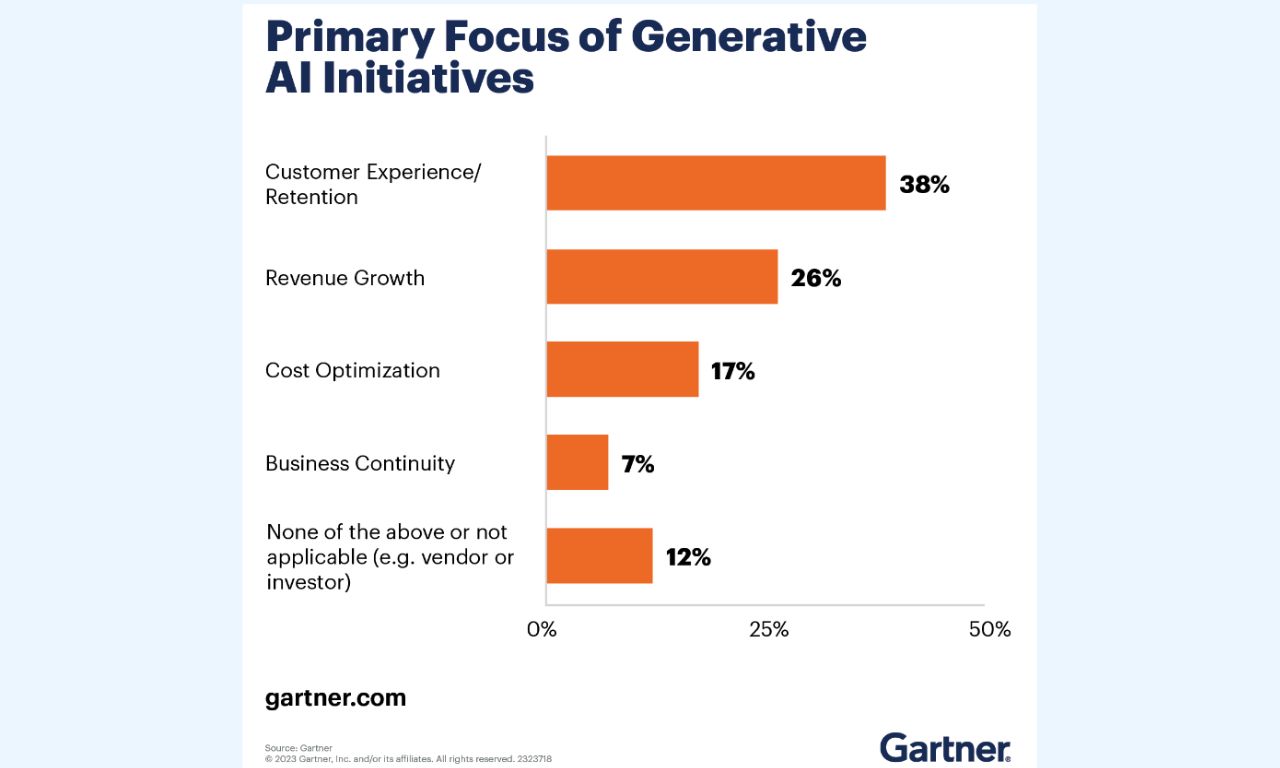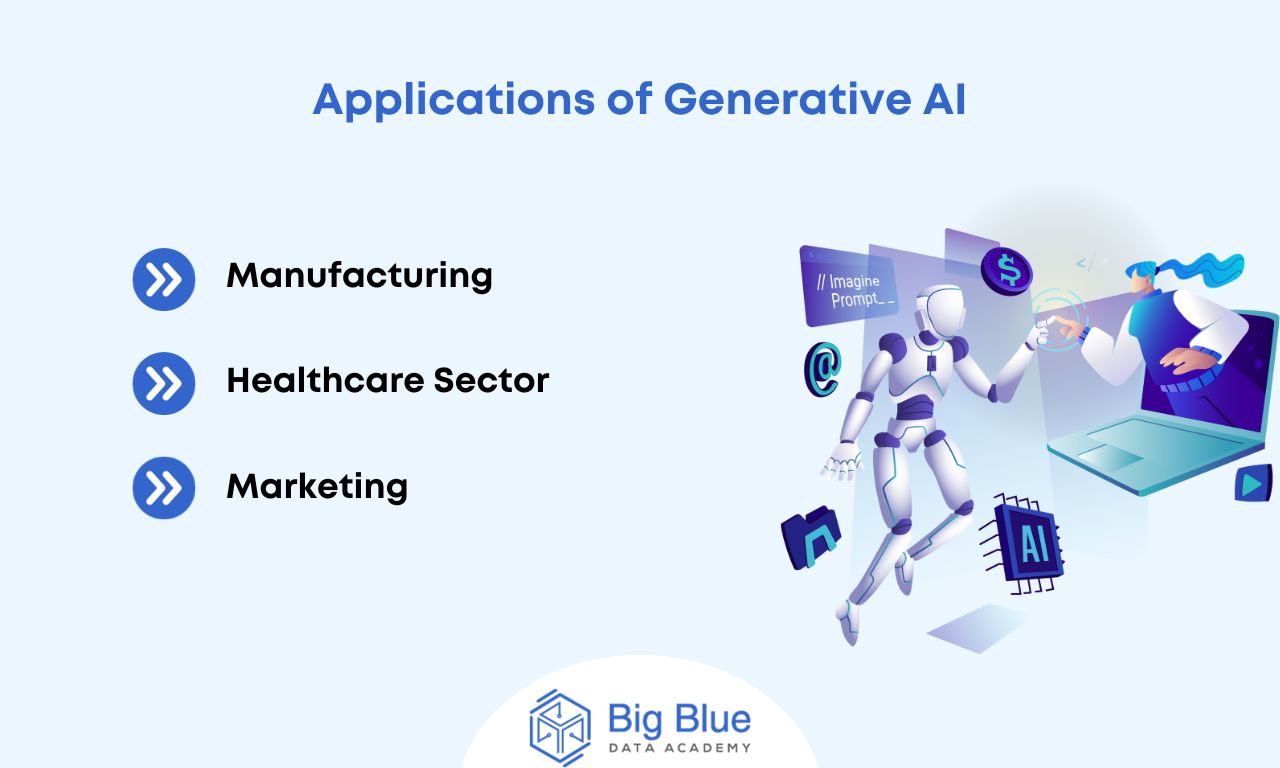Generative AI: Advantages, Applications & Challenges
AI is a broad umbrella term with various branches that has brought about radical changes in a wide range of fields.
In today's article, we will focus on Generative AI, which, following advancements in large language models (LLMs) and the dynamic presence of chatbots in our lives, has paved the way for new opportunities and possibilities.
Specifically, in this guide, we will explore:
- What is Generative AI
- The advantages it offers
- Its applications
- Some challenges it has brought
Let’s start with a basic definition.
What is Generative AI?
Generative AI is a type of artificial intelligence with the ability to produce various types of content based on a prompt from the user.
The prompt can take various forms, such as text, image, or video.
Subsequently, the Generative AI model returns, as a response to the specific input, new content, which can range from articles and solutions to problems to functions in a programming language like Python and even synthetic data.
These models use various neural network techniques, such as transformers, GANs, and VAEs.
Through the use of various methods and algorithms for text representation and generation, such as NLP techniques, different raw characters are transformed into sentences and then represented as vectors using encoding techniques.
Some of the popular applications of Generative AI include Google's chatbot Bard and OpenAI's ChatGPT.
Moving on, let's see what are the key advantages of Generative AI.
Advantages of Generative AI
The benefits of Generative AI include faster product development, reducing the production cycle, and improving a more personalized customer experience.
Additionally, worker productivity is enhanced as businesses automate repetitive and time-consuming processes, saving resources and money.
According to a Gartner survey involving at least 2,500 business executives:
- 38% stated that customer experience and retention were their primary concerns in investing in Generative AI solutions,
- 26% mentioned revenue increase,
- 17% highlighted cost optimization,
- 7% focused on enhancing business longevity.

Having covered some essential aspects of Generative AI and the advantages it offers, let's delve into some key applications.
Key Applications of Generative AI
Some primary use cases where Generative AI can be applied effectively include:

Manufacturing
Manufacturers can use Generative AI to combine data from cameras and X-rays to identify potentially defective components and their exact causes.
Historical data can help detect faults in real-time and provide maintenance suggestions.
Healthcare Sector
Generative AI can significantly benefit the healthcare sector.
It can be utilized to enhance and optimize clinical trials by rapidly synthesizing large volumes of combined data.
Moreover, it can automate research reports, detect potential drug side effects, and even discover new medications.
Marketing
Another vital use of Generative AI is in marketing.
Chatbots, a fundamental application of Generative AI, can improve customer service and enhance personalization.
This saves valuable time, improves the customer experience, and boosts customer retention rates.
Generative AI has also changed how marketing materials are created. For example, an online video editor powered by AI can make editing faster and easier with features like automatic scene detection, text-to-video, and AI avatar generation.
Challenges of Generative AI
Despite its advantages, there are concerns about the potential misuse of Generative AI, such as creating fake news or deepfakes for deceptive purposes.
Additionally, the quality of the data used to train Generative AI models is crucial.
These models are often used to generate synthetic data for various cases, and in case these data are not of high quality and unbiased, the result is questionable.
Moreover, another issue is the lack of transparency and possible inaccuracies in the data produced, which is why the user always needs to verify the information before it is used.
Ramping Up
We've explored what Generative AI is, its benefits, challenges, and some of its applications.
Generative AI offers a variety of benefits to the viability and profitability of any business that uses it, as long as it is used correctly and based on applicable privacy regulations.
The field of artificial intelligence has a particularly noticeable presence and is constantly evolving.
If you are intrigued and want to learn more about the world of data science, follow us for more educational articles!

.jpg)
.jpg)